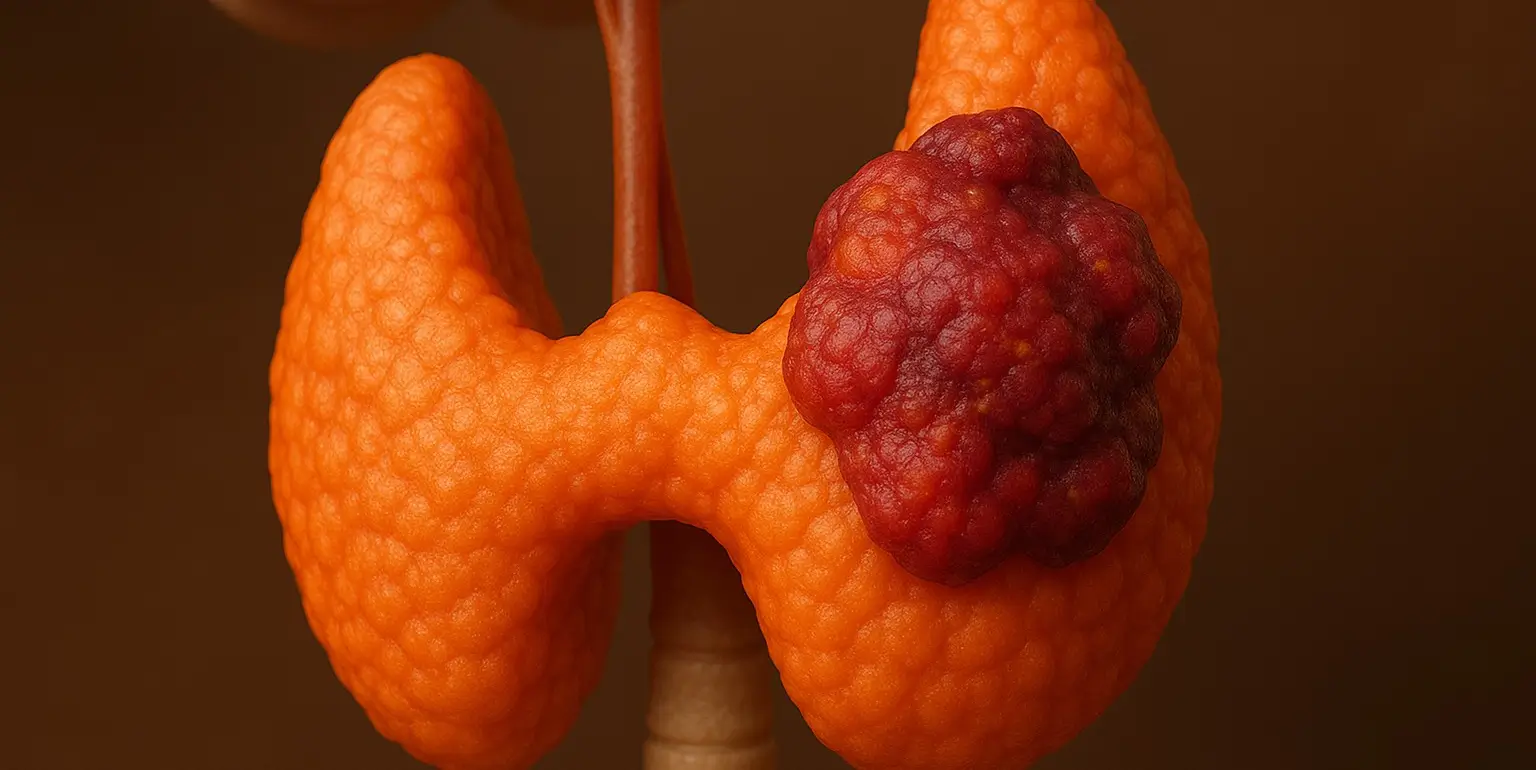Thyroid Cancer Introduction
- Thyroid cancer arises from the cells of the thyroid gland.
- It is generally highly treatable and often curable, especially when detected early.
Types of Thyroid Cancer
-
Papillary:
- The most common and least aggressive type.
-
Follicular:
- Includes Hurtled cell carcinoma; tends to spread to distant organs.
-
Medullary:
- Arises from C cells that produce calcitonin; may be part of genetic syndromes.
-
Anaplastic:
- Rare and highly aggressive.
This is a sample ad placement!
Causes
- Genetic Mutations: Can lead to uncontrolled cell growth.
- Radiation Exposure: Increased risk, particularly from childhood radiation exposure.
- Family History: Genetic predisposition in some types of cancer.
Symptoms
- A lump or swelling in the neck.
- Hoarseness or voice changes.
- Difficulty swallowing or breathing.
- Persistent cough not related to a cold.
This is a sample ad placement!
Diagnosis
- Ultrasound: To visualize thyroid nodules and lymph nodes.
- Fine-Needle Aspiration (FNA) Biopsy: To examine cells for cancer.
- Blood Tests: To measure levels of thyroid hormones and calcitonin.
- Radioactive Iodine Scan: To assess thyroid function and detect metastasis.
- Genetic Testing: For hereditary forms of thyroid cancer.
Treatment
- Surgery: Primary treatment, often involving thyroidectomy (removal of part or all of the thyroid gland).
- Radioactive Iodine Therapy: To destroy remaining thyroid tissue and treat metastasis.
- Thyroid Hormone Therapy: To replace hormones and suppress TSH (thyroid-stimulating hormone) to prevent cancer recurrence.
- External Radiation Therapy: For advanced or inoperable cancer.
- Chemotherapy: Used in some cases of anaplastic this cancer.
- Targeted Therapy: For advanced cancer not responding to other treatments.
This is a sample ad placement!
Thank you for reading from Firsthope's notes, don't forget to check YouTube videos!

